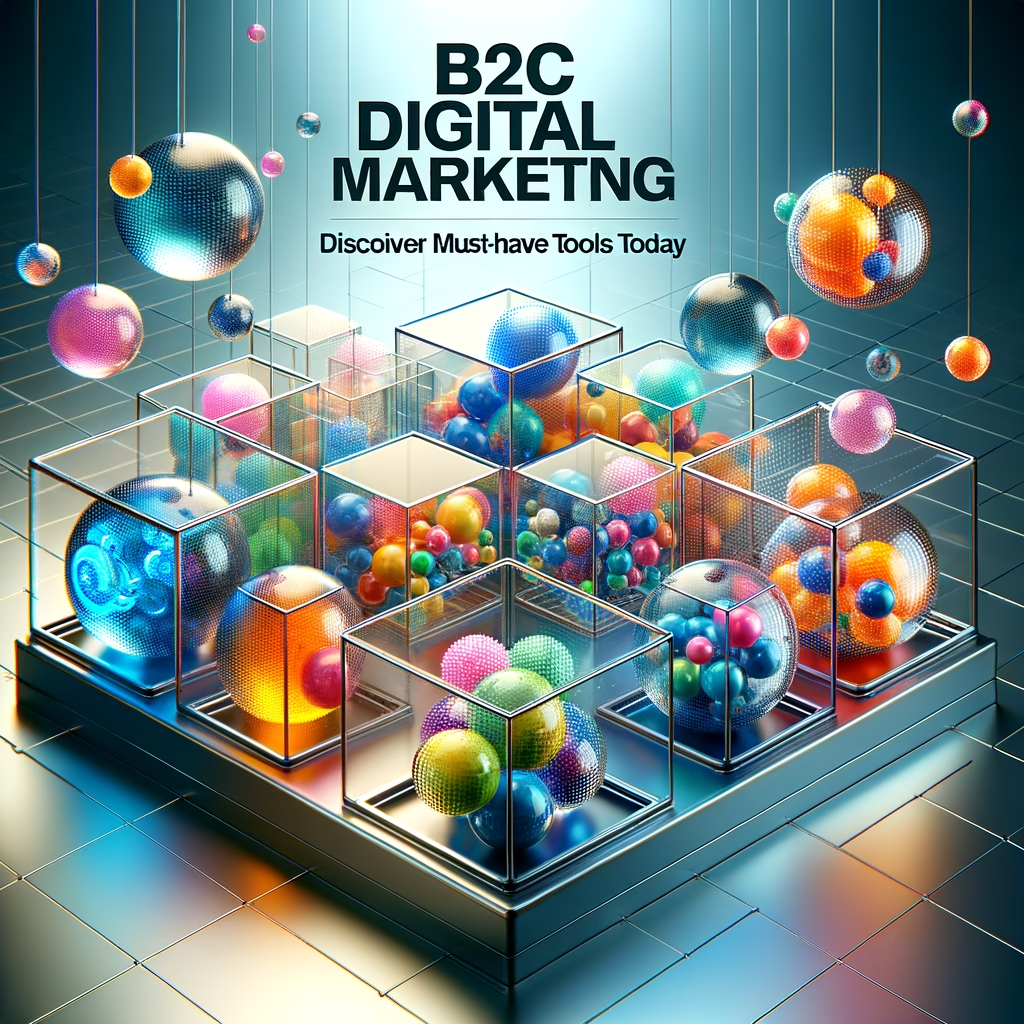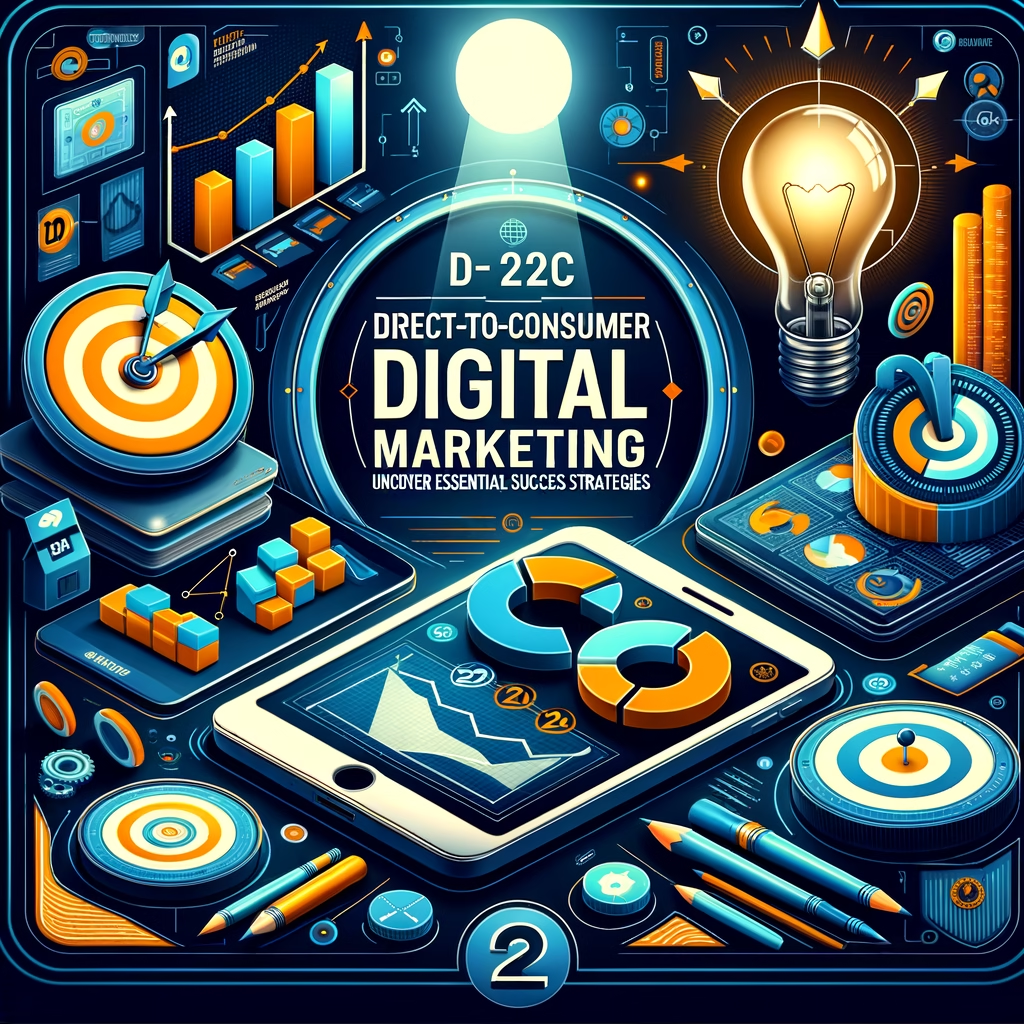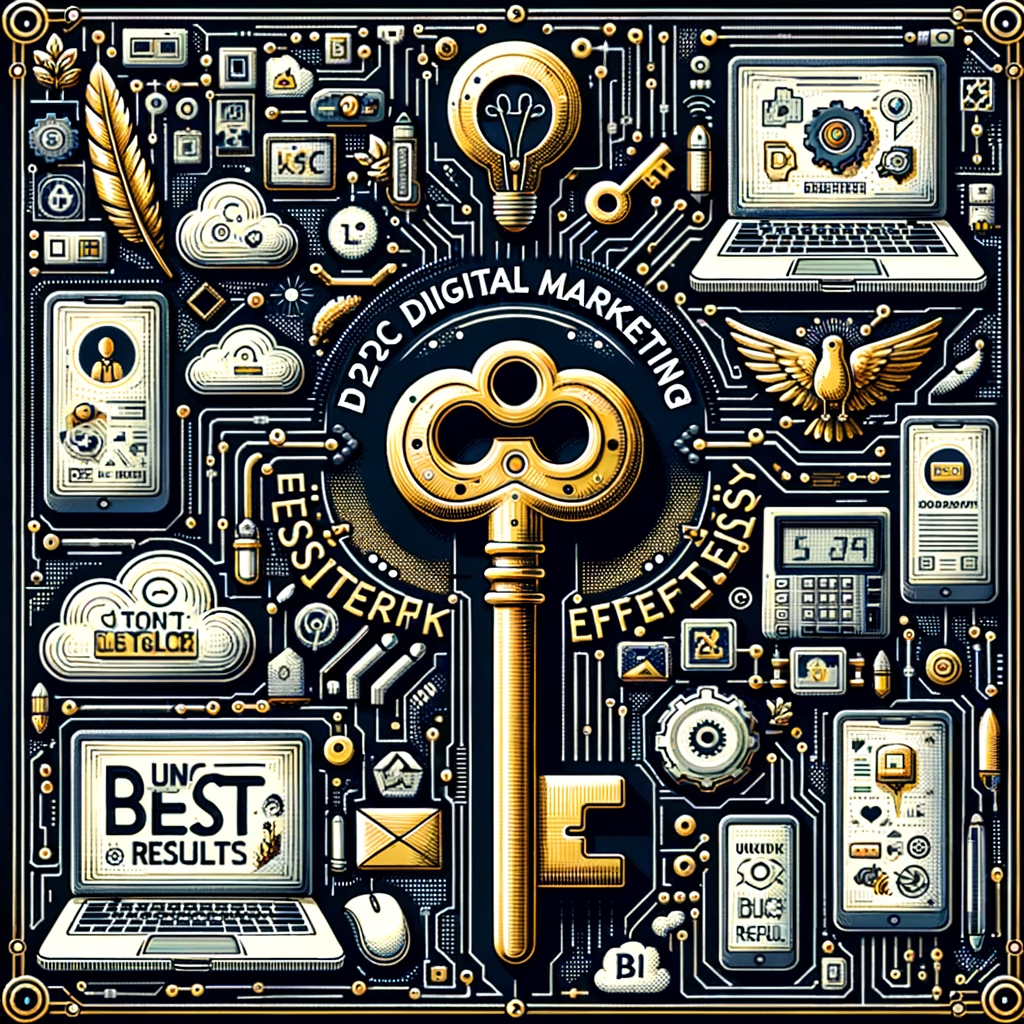- Why the Right Tools Matter in B2C Digital Marketing
- Embracing Automation in B2C Marketing
- Benefits of Automation Tools
- Data-Driven Strategies
- Importance of Data Analytics
- Social Media: The Powerhouse of B2C Marketing
- Key Benefits of Social Media Management Tools
- Personalization and CRM Tools
- Advantages of CRM Tools in B2C Marketing
- Emerging Trends and Future Directions
- Future of B2C Digital Marketing Tools
- Case Studies: Successful Brands Using Digital Tools
- Conclusion
B2C Digital Marketing: Discover Must-Have Tools Today – Strategies for Success
B2C digital marketing is at the forefront of modern business strategies, enabling brands to engage with consumers directly and effectively. In today’s competitive environment, discovering the right tools can markedly enhance a company’s ability to execute successful marketing campaigns. Utilizing appropriate tools is no longer optional but imperative for businesses determined to stay ahead.
Why the Right Tools Matter in B2C Digital Marketing
In the world of B2C marketing, where consumer behavior rapidly evolves, having the right tools is critical. These tools streamline processes, provide valuable insights, and ultimately drive better results. The landscape is vast, featuring tools specialized in analytics, social media, email marketing, content creation, customer relationship management (CRM), and more. Incorporating these into a cohesive strategy can make the difference between success and failure in engaging consumers and fostering brand loyalty.
Embracing Automation in B2C Marketing
One of the standout strategies for leveraging tools in B2C marketing is automation. Automation tools like HubSpot, Marketo, and ActiveCampaign provide immense value by simplifying repetitive tasks such as email marketing, social media posting, and lead nurturing. This not only saves time but also allows marketing teams to focus on creativity and strategic planning.
Benefits of Automation Tools
1. Efficiency and Time Management: Automation frees up time for marketing teams by handling manual and repetitive tasks, allowing them to concentrate on crafting compelling marketing strategies.
2. Personalization: Tools can personalize customer interactions at scale, tailoring messages and offers based on observed data and behaviors.
3. Consistent Engagement: Automation ensures that consumers receive timely and consistent messaging, maintaining brand presence in their minds.
Data-Driven Strategies
Data analytics tools play a vital role in developing strategies in B2C marketing. Tools like Google Analytics, Mixpanel, and Tableau help brands understand consumer behavior, preferences, and trends. By analyzing data, companies can create more targeted and effective marketing strategies.
Importance of Data Analytics
1. Understanding Customer Behavior: Analytic tools provide insights into how consumers interact with different touchpoints, helping marketers refine their approaches.
2. Predictive Analysis: Advanced analytics can predict future trends and consumer behaviors, enabling brands to stay proactive.
3. Measuring ROI: These tools help in accurately measuring the ROI of marketing campaigns, aiding in budget allocation and strategy refinement.
Social Media: The Powerhouse of B2C Marketing
Social media platforms remain a powerful channel in B2C marketing, and tools like Hootsuite, Buffer, and Sprout Social optimize the management of these networks. They allow for scheduling, monitoring, and engaging on social media, expanding the reach and impact of marketing efforts.
Key Benefits of Social Media Management Tools
1. Enhanced Reach: Efficiently manage multiple social media accounts from a single platform, expanding a brand’s digital footprint.
2. Real-Time Engagement: Respond to customer inquiries and comments in real-time, improving customer relationships and satisfaction.
3. Analytics and Reporting: Provide insights into campaign performance, helping refine future social media strategies.
Personalization and CRM Tools
In B2C marketing, personalization is key to capturing and retaining attention. CRM tools like Salesforce, Zoho, and Microsoft Dynamics empower businesses to create personalized experiences for their customers, heightening engagement and loyalty.
Advantages of CRM Tools in B2C Marketing
1. Customer Insights: CRMs gather detailed information about customer preferences, purchase history, and interactions, enabling more personalized marketing.
2. Improved Customer Relationships: By having a comprehensive view of customer interactions, businesses can offer better service and build stronger relationships.
3. Sales and Marketing Alignment: CRM tools help align sales and marketing efforts, ensuring both teams work towards common goals and objectives.
Emerging Trends and Future Directions
As technology evolves, so does the landscape of B2C marketing. Staying updated with emerging tools and trends, such as AI-driven marketing platforms and augmented reality, is essential. Tools like AdRoll and SEMrush incorporate AI for more advanced targeting and campaign management, reflecting a shift towards more intelligent marketing practices.
Future of B2C Digital Marketing Tools
1. AI Integration: The growing integration of AI in marketing tools suggests a shift towards more predictive and adaptive marketing strategies.
2. Enhanced Customer Experience: Future tools will likely focus even more on enhancing customer experiences, providing immersive and engaging brand interactions.
3. Increased Data Privacy Measures: With increasing scrutiny on data privacy, future tools will prioritize data protection while still providing rich consumer insights.
Case Studies: Successful Brands Using Digital Tools
Several well-known brands have effectively utilized digital tools to enhance their B2C marketing strategies. Netflix, for instance, uses data analytics to personalize content recommendations, significantly increasing user engagement. Similarly, Amazon’s recommendation engine—driven by sophisticated algorithms and data analysis—accounts for a substantial portion of its sales.
Conclusion
The effectiveness of B2C digital marketing is greatly enhanced through the strategic use of appropriate tools. From automation and data analytics to CRM and social media management, these tools offer numerous benefits. As brands seek to thrive in a crowded digital environment, embracing and adapting to these tools becomes not just beneficial but essential. Future success in B2C marketing will depend on how well businesses can integrate these tools into their strategies, anticipating and meeting the evolving needs of consumers.




